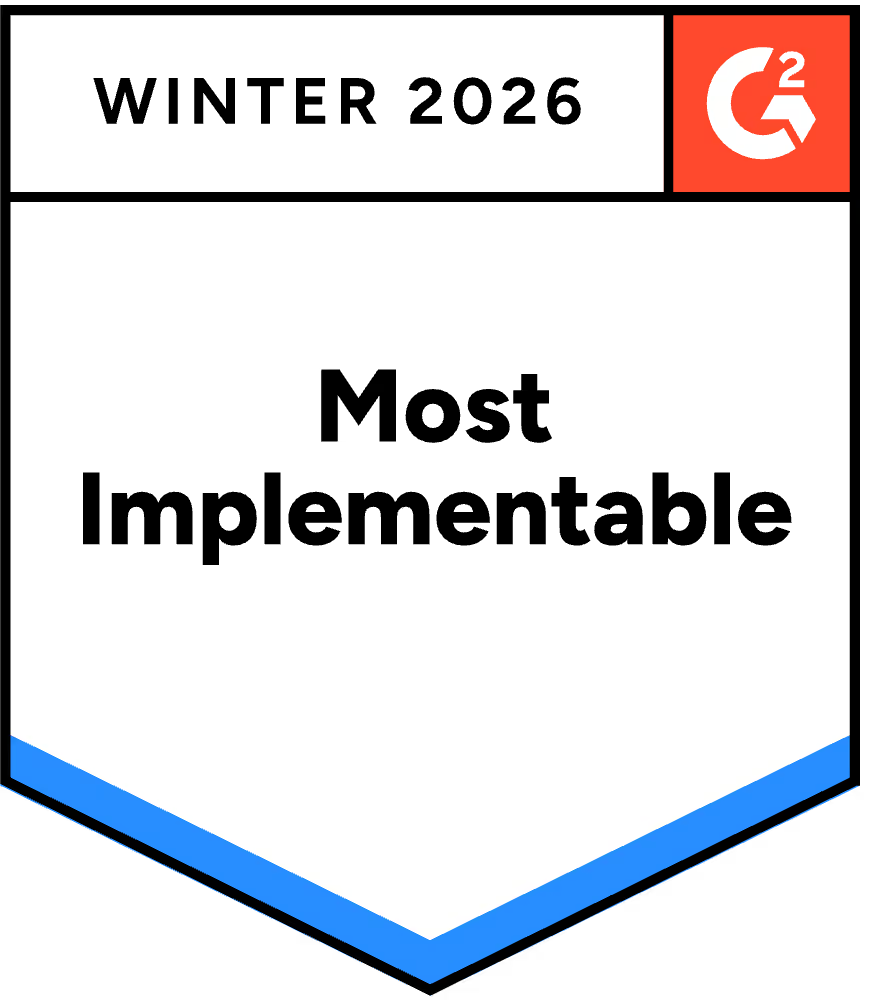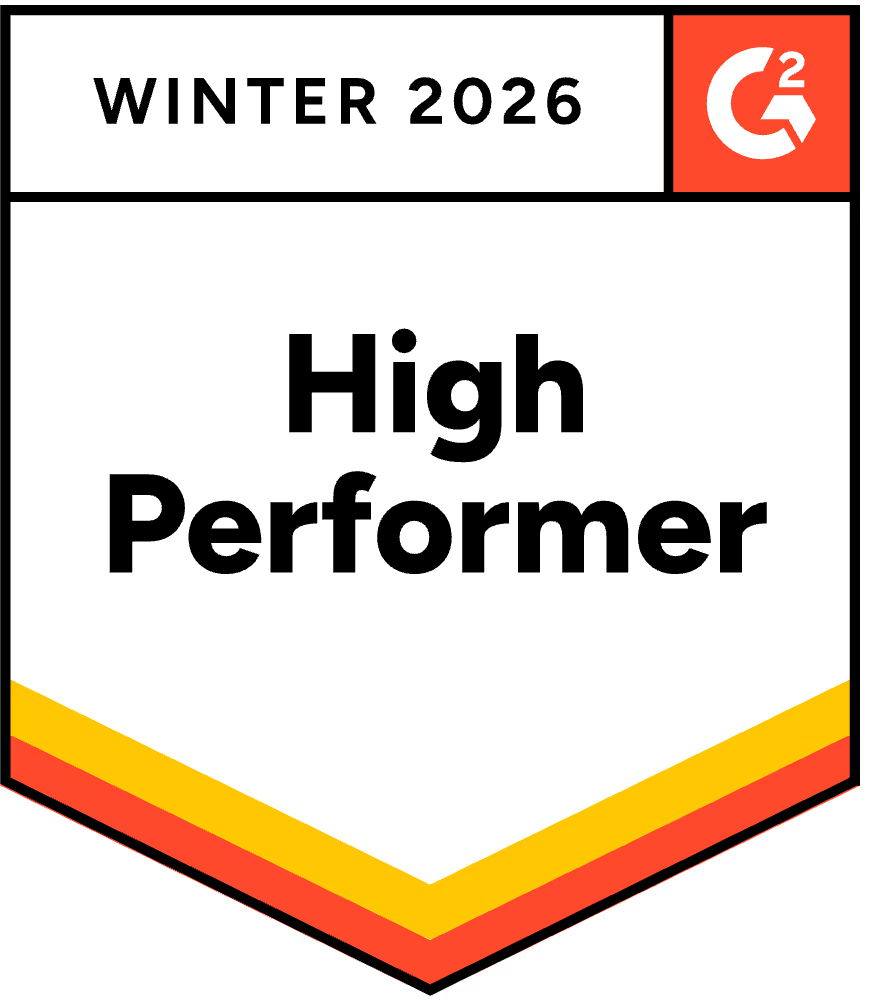Self-evaluation tips & examples for your next performance review [with infographic]
![Self-evaluation tips & examples for your next performance review [with infographic]](https://cdn.prod.website-files.com/5f55ff47b6d23a11cb496a69/66fcefc07474c9d98e5edcf8_pexels-silverkblack-23496604.jpg)
Performance reviews have a bad reputation. Blame it on decades of toxic workplace cultures in which fear was used as a driving force — and an extremely inefficient one. Unfortunately, this outdated notion of performance reviews still lingers, which can make you fear a process that, as forward-thinking companies now understand, can boost engagement and development, foster collaboration, and promote the growth of organizations.
It's time we use performance reviews to drive self-development, not fear!
Enter self-assessments, a critical part of performance reviews. According to coach and people enthusiast Sophie Schönicke, self-evaluation “helps the participant compare their self-perception with external views and recognize strengths and areas for development.” Yet, instead of a productive conversation that can benefit your career and personal development, what you may be picturing is an image of yourself on a therapist’s couch — and with an audience.
Granted, not every employer is as progressive as they could be, and performance reviews are still misused by many. Still, you should think of your self-assessment as something you’re doing for your benefit. It’s an opportunity to focus on your growth, have your achievements recognized, and discover your strengths. What’s more, expressing your thoughts and knowing how you’re perceived will potentially increase transparency at work.
Benefits of a good self-evaluation
Self-evaluation gives employees the opportunity to assess their skills and areas of development. It's an important aspect of any 360 review because it gives employees time for introspection and analysis of strengths and weaknesses. Self-evaluations offer several benefits including:
- Personal growth: Self-evaluations allow employees to reflect on areas for improvement and growth. Individuals are encouraged to identify past challenges and set development goals to progress professionally
- Self-awareness: Self-evaluation fosters self-awareness through self-reflection on past mistakes, wins, and challenges.
- Increased motivation: Employees who regularly assess their performance will notice improvements and feel a sense of accomplishment which in turn motivates people to strive for continued success.
- Improved performance: By evaluating their own performance, employees gain a deep understanding of areas for improvement and can work on actionable strategies to improve their performance.
- Accountability: Self-evaluation gives employees a sense of responsibility for their own actions. Employees who write self-assessments become more proactive in their actions and decisions in order to meet their own standards.
- Decision-making: Regular self-evaluations helps employees recognize patterns and learn from mistakes, leading to better decision-making in the future.
👀 Are you dreading your next performance review?
Reviews don’t have to be unenjoyable. We’ve made Leapsome to deliver development-oriented and actionable performance reviews to everyone.
👉 Learn more

30 self evaluation examples
Getting the phrasing right in performance reviews can be tricky for some people. That's why we've created this list of self-evaluation examples based on different categories. Save them for your next performance review to feel more confident in giving feedback.
Problem-solving & management
The abilty to analyze problems and come up with creative solutions is crucial in a business context so it’s important to assess whether employees are doing this in an effective manner.
Positive
- I am very capable of breaking down complex problems into manageable initiatives
- I consistently think outside the box and am able to generate creative and novel approaches
- I consistently make well-thought-out and timely decisions
- I have a track record of achieving tangible results and meeting objectives
- I have been able to successfully manage initiatives and achieve the targeted results
Constructive
- I struggle focusing on the root causes of problems and so often apply temporary solutions or "quick fixes"
- I become overwhelmed when circumstances change and I need a lot of time to adapt my strategy to accommodate new challenges
- I am afraid of taking ownership and tend to delegate responsibility when possible
- I have been told that I am over-engineering solutions and have a hard time communicating my ideas clearly
- I have a hard-time sticking to agreed upon timelines for initiatives and often have to push back on deadlines
Communication
Clear and effective communication is an important skill in any team. It's important for employees to regularly assess their communication with colleagues and managers.
Positive
- I actively listen to my colleagues and give thoughtful responses
- I am able to convey my ideas and in a clear and concise manner
- I am open to feedback and react in an appopriate manner even when faced with constructive feedback
- I actively seek input from my colleagues and value their opinion
- I have shown the ability to mediate conflict and work out solutions and compromises between team members
Constructive
- I have a habit of interrupting people when their speaking, which can hinder effective communication
- I have been told that I use complex technical jargon when speaking to colleagues from other teams, which can lead to confusion and miscommunication
- I often rush through my explanations and fail to provide enough detail for the other person to understand
- I have a hard time staying attentive when I listen to colleagues explain something, leading to them feeling unheard and me missing information
- I feel uncomfortable asking questions in large meetings and often leave confused about the information shared
- I have struggled to keep my emotions in check upon receiving negative feedback and lashed out against people
Growth and development
Performance reviews should primarily focus on development. As such, it is important for employees to evaluate their past development and identify areas for growth.
Positive
- I consistently set ambitious goals for myself and actively seek out opportunities for professional growth
- Whenever I aquire new knowledge relating to my field I actively try to apply it in my work
- I take complete ownership of my professional development and consistently seek out opportunities for growth
- I showcase a growth mindset and am able to adapt to changes and overcome new challenges
- I have noticably improved on some of the challenges laid out in my last performance review
Constructive
- I have a hard time prioritizing my work-life balance and most often my professional development takes up my weekends, because I can't make time for it during the week
- I often forget the importance of collaboration and seeking out alternative viewpoints
- I don't take enough time to seek feedback from colleagues even though I know it could positively impact my development
- I have a hard time finding resources that would be helpful in my development and often rely on others to tell me what I should be focusing on.
Performance and work-quality
This section gives employees the opportunity to reflect on their performance and accomplishments thus far. It also serves as space to reflect on mistakes and challenges.
Positive
- I consistently demonstrate a strong work ethic and hold myself accountable to high-quality standards
- I am capable of setting realistic deadlines and meeting objectives.
- I show exceptional attention to detail and consistently produce accurate work
- I follow correct procedures and guidelines whenever they exist and actively think about ways to improve processes
Constructive
- I should improve focusing on the attention to detail rather than delivering results quickly as I often times make small mistakes and neglect to double-check my work
- I sometimes struggle with meeting deadlines and could improve my time management skills
- I lack some of the knowledge required for me to provide a higher quality of work.
- I frequently become distracted while working on tasks and struggle to set deep work blockers for myself or restrain from checking my emails/slack
Leadership
Employees who aim to take on managerial roles in the future should consistently be evaluated on their leadership skills to assess whether they're ready to take on the responsibility of managing others.
Positive
- I bring a positive attitude to the team and am often told that it is very motivating to work with me
- I often take initiative when I see things that could be improved and I am not afraid to address challenges
- I reliably bring results and manage my time effectively and efficently
- I have strong relationships with my colleagues and am always availaible to support and collaborate
- I have very high quality standards for my own work and set a positive standard for other team members
Negative
- I have a hard time taking initiative even when I see things that could be improved and instead tend to rely on others to take charge
- I could be more critical when thinking about which initiatives we should focus on and need to take a more proactive approach to goal-setting
- I struggle to build relationships with my colleagues and working together can feel tense at times
- I have a hard time staying focused on our goals and often need extra time to deliver on initiatives
Stress management
Employees should evaluate how well they currently handle stress in their work place to prevent burnout and stay productive, even in challenging times.
Positive
- I have frequently shown adaptability and resilience in challenging situations and am capable of adapting to changing circumstances
- I focus on solutions rather than problems and am very proactive in solving challenges
- I have a healthy work-life-balance and use my time off for self-care and to recharge
- I am capable of identifying when I need support and can seek out the right people to involve to assist me
- Even in very stressful situations I am resilient and able to bounce-back from challenges
Negative
- I can easily become overwhelmed when situations get stressful and it can spill over and affect my colleagues
- When I have a lot of tasks on my plate, I have difficulty establishing order and prioritizing effectively
- Even during my time off I often find myself worried about work and I have a hard time relaxing completely
- I often feel too embarrassed to ask for help even when I know I need it and instead try to shoulder everything on my own
- I don't know how to effectively support my colleagues when they're under stress
🚀 Leapsome lets you automate an customize how you give feedback
Our growth-oriented performance review software keeps track of employees performance and lets you build individual roadmaps for development.
👉 Learn more
Best-practices for a strong self assessment
Self-assessments are equally important for employees and their managers. It's a chance for you to reflect on, as well as highlight aspects of your work and share feedback. While writing your self-assessment there's a couple of important aspects to keep in mind that we have outlined below.
Play to your strengths
An extra benefit of self-assessments is appreciating what you do exceptionally well. This will help you gain more clarity on what tasks you enjoy the most and use constructive feedback in your favor.
Having a conversation about your strengths can make way for projects where you’ll have the opportunity to put your top skills to use. This can be your chance to achieve even better results and find more enjoyment in what you do — Gallup data demonstrates that using your strengths at work can improve your levels of engagement up to six times and increase your productivity by 12.5%. Additionally, identifying what you’re good at is crucial for knowing what to take in if you receive harsh feedback.

Aim for self-awareness
“Personal growth is closely linked to self-awareness, as reflection helps us be more attentive to underlying values, own biases, subjective perception, and situational behavior.” — Sophie Schönicke, Coach & People Enthusiast
Put simply, self-awareness means being conscious of your personality, actions, thoughts, and emotions.
Making it part of your self-evaluation can help you make the most of the process and take action for improvement. Claudia Braun suggests that we also observe how we treat ourselves:
“What is your inner reaction when you notice that you made a mistake or could have done something better or faster? Is there an element of beating yourself up (as in ‘Idiot, how did I not consider X, Y, Z?’), or is there an attitude of interest — ‘Oh, let me understand what happened here. There is certainly something I can learn!’”
Practicing self-awareness has the potential to improve your life beyond your job.

Be humble, but authentic
Staying true to yourself should be your main priority during self-assessments. This means not showing off, not humble-bragging, but also not diminishing your skills. Don’t be afraid of giving yourself an outstanding grade if you feel you’ve excelled in a particular area.
To avoid impostor syndrome (and avoid underestimating your skills), provide factual information and data when rating yourself. You did a great job launching a new project at work? Don’t count on your manager remembering each of your wins — make sure to include them in your review.

Keeping a success journal is a great way to ensure you also don’t forget what you’ve accomplished. No matter how big or small, each win should make it into this diary, which will help you when it’s time for your performance appraisal.
Although it may feel odd at first, we must train ourselves not to give more weight to shortcomings than to accomplishments. Chances are, you’ve learned to excel in negative self-talk over the years and not to acknowledge your talents.
This is especially pervasive if you identify as a woman and/or are part of a marginalized community — in which case, you might also be dealing with unconscious bias in performance reviews from managers and colleagues in privileged positions. On a similar note, be careful not to reinforce toxic gender expectations that dictate, for instance, that men can’t be too soft and women must be docile.
All in all, be honest about your strong skills while considering how you could apply them for professional development in other areas. There is no such thing as perfection, and you shouldn’t be expected to figure everything out on your own. Ask for help when needed — you might be setting a great example and helping advance workplace culture.

Understand how your company measures performance
There are different performance management methods, and not every employer follows the same metric in 360° reviews. Even if grades seem to be the same (e.g., 0-10, 1-5), benchmarks may differ. For instance, 3 would indicate average performance within some metrics, but we recommend a system in which 3 stands for meeting all expectations (or 100%).
Make sure to get informed before starting your self-assessment. This way, you won’t be at risk of assigning yourself grades that don’t correspond to your self-evaluation. Additionally, you won’t be startled if you receive a rating that seems very low, but according to your company’s system, reflects a better evaluation than you thought.

After the review, focus on the “what”
If you’re anxious about your self-assessment and performance review, this feeling may not immediately go away after your development talk with your manager. For many, negative self-talk and rumination kick in after the process — but this is not the way to go about change.
Taking actionable steps for improvement
You might have come across Simon Sinek’s “Golden Circle.” This framework suggests that organizations must know their purpose (the “why”) before exploring “how” they aim to achieve the “what” (products or services). Focusing on the “why” is a tried-and-tested path to successful entrepreneurship. But when approaching our performance reviews, we’re looking to first focus on the “what.”
Consider this situation: a new position opens at your company, which could be your chance to get promoted and take on more responsibility. However, you don’t voice your wants and expect your manager to promote you if they think you have sufficient skills. In the end, a new person gets hired for the position. As you discuss your 360° review, you and your manager determine that you would be ready to take on more responsibilities, but the position is no longer available.
As argued, practicing self-awareness is essential, and unearthing why we have certain behaviors is important for change. However, focusing on “why” questions at this time (“why didn’t my manager see my skills before?” or “why didn’t I believe in myself?”) might make you blame yourself and doubt your potential even more. It will bring no resolution. What you need is to pave the way for the next steps in your career path.

In contrast, “what” questions can be valuable tools to digest your performance review. They have the potential to provide objective conclusions and point toward actionable solutions. A “what” question such as “what can I do, given my circumstances today, to advance my career?” focuses on the present and what can be done to improve a situation.
Additionally, Claudia Braun recommends that we use “what” questions to dig deeper.
“If we truly and sustainably want to change behavior and develop ourselves, it’s very useful not to stop with self-awareness at our behavior and how others perceive it, but also understand what is driving our behavior, namely thoughts and emotions and — if you want to go even deeper — needs and fears. One very effective way of training self-awareness on these different levels is mindfulness and meditation.”

🎯 Curious how Leapsome can improve performance reviews?
We help over 1,000 different companies build review processes that employees love.
👉 Let’s discuss how we can help you
In short
To summarize here are nine tips to share with your employees or to keep in mind for your own self-assessment. Copy the infographic at the end of this post and share it in your internal network or on social media.
- Make self-awareness a daily practice;
- Practice self-compassion;
- Keep a success journal with every win (big or small);
- Be authentic and don’t reinforce gender expectations;
- Use factual information to help you rate yourself;
- Be honest and ask for help when needed;
- Don’t give more weight to shortcomings than to achievements;
- Understand how your company measures performance;
- After the review, focus on “what” questions.
⭐ Leapsome makes professional development a priority
Employees who experience growth and mastery at work are more engaged and productive. Leapsome helps companies build a development-oriented culture
👉 Ask our product experts
Personal and professional development
Getting to know ourselves is a lifelong endeavor, and each step will help you perceive what you can do to improve in different areas of your life. Hopefully, you’ll practice self-compassion along the way and accept that external circumstances can impact your performance. Whichever direction results go, they don’t determine who you are, but they can help you grow into who you want to be.
The next time you’re asked to fill out a self-assessment for a performance review, remember that this process is your ally and that self-development can be an exciting and gratifying journey.
![The Leapsome Blog – How to Write a Self-Assessment for Your Next Performance Review [Infographic]](https://cdn.prod.website-files.com/5f55ff47b6d23a11cb496a69/66fcefc67ff65764f5578744_5fa010c395a8538388699e12_How%2520to%2520Write%2520a%2520Self-Assessment%2520for%2520Your%2520Next%2520Performance%2520Review%2520%255BInfographic%255D.png)
— If you’re an HR or People Ops professional who would like to learn more about how Leapsome can help your team with self-assessments, book a demo with one of our product experts.
Ready to transform
your People operations?
Automate, connect, and simplify all HR processes across the employee lifecycle.
.webp)
.webp)
 Request a demo today
Request a demo today







.jpg)
.jpg)

























